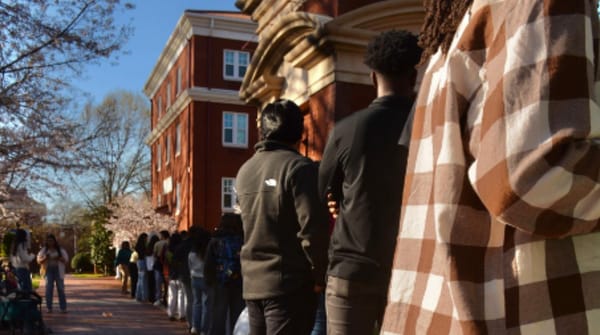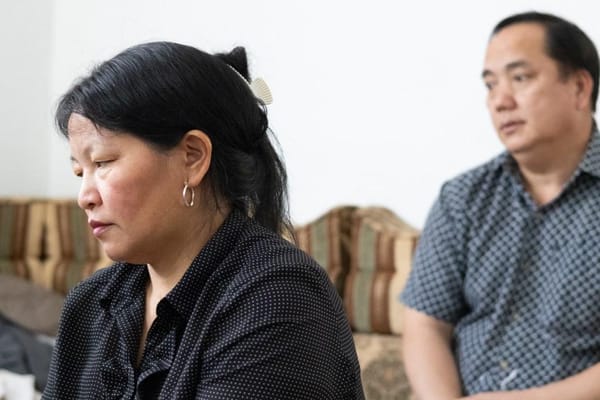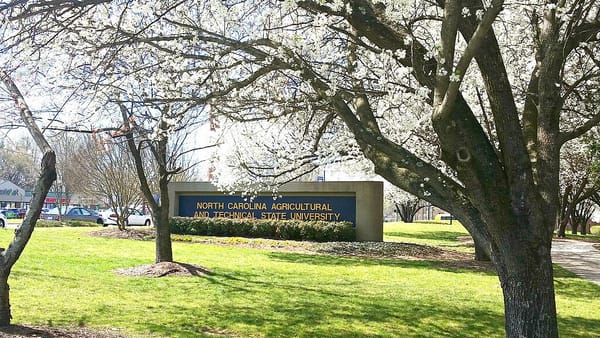Briefs: North Carolina Launches Clean Energy Microgrid Initiative
Public invited to comment on draft air quality permit modification for plywood manufacturing facility in McDowell County
Down Ballot Staff Reports
ASHEVILLE–In collaboration with Land of Sky Regional Council (LOSRC), NC Sustainable Energy Association (NCSEA), Footprint Project (FP) and a network of regional partners, the North Carolina Department of Environmental Quality (DEQ) State Energy Office (SEO) is investing $5 million in permanent and mobile microgrids that will provide accessible power in future weather disasters.
SEO received $10.4 million in federal Infrastructure Investment & Jobs Act funding for five years to support the State Energy Program work, with $5 million being dedicated to this Microgrid Initiative. Up to 24 stationary microgrids will be installed across six Helene-affected counties, with two mobile “Beehive” microgrid hubs serving the entire state — one in Western North Carolina and one in Eastern North Carolina. This innovative disaster recovery model will strengthen emergency power access for critical community services, serving thousands of North Carolinians.
“Hurricane Helene showed us that we need to be prepared to withstand severe weather emergencies. That means rebuilding our energy infrastructure with resilience in mind,” said Governor Josh Stein. “This investment will better connect western North Carolina to the rest of the state, and it will improve our ability to keep people safe and respond to future disasters.”
"This initiative represents a leap forward in how we prepare for and respond to disasters," said Reid Wilson, DEQ Secretary. "Thousands of families were isolated without power and communications after Helene struck. The microgrids will provide essential power supplies and will serve as community resilience hubs in both times of crisis and under normal conditions.”
“Hurricane Helene taught me that we must reimagine how our communities prepare and respond. These microgrids were lifelines during the storm and have the ability to serve our region every day. By combining renewable energy with local partnerships, we’re creating resilient infrastructure that can keep critical services running when the grid goes down,“ said Sara Nichols, Energy and Economic Development Manager, Land of Sky Regional Council.
“This year we updated the North Carolina Energy Security Plan, which identifies microgrids as a key way to mitigate impacts from disturbances to the electric grid,” said Julie Woosley, SEO Director. “A microgrid can enhance the resilience of critical infrastructure in our state by providing a localized, reliable, and flexible energy system that can operate independently or in coordination with the main power grid. This is a cost-effective way to meet local energy needs during outages and provide supplemental energy during peak times. The State Energy Office is glad to be able to provide funding for this initiative to show the value of these systems to our communities."
Land of Sky Regional Council will begin purchasing the beehive microgrids in the coming months and the stakeholder engagement for the installation will take place in September. Site selection for the microgrids will begin in the fall of 2025 with project completion anticipated in June 2027.
Microgrids provide essential advantages both during emergencies and in everyday operations. By producing their own solar electricity and using battery storage, microgrids help communities stay powered through outages and reduce the risk of extended or rotating blackouts. They can also:
Integrate with the main grid to enhance energy diversity and resilience Support the grid during periods of high demand Serve as a platform for innovation, enabling exploration of new technologies and uses Lower energy costs over time through locally generated and stored power Beehive Microgrid Hubs will act as mobile, no-cost lending libraries, making solar and battery equipment accessible to community organizations across the state for both emergency use and ongoing preparedness.
Stakeholders from emergency management, community groups, utilities and local government will help determine site selection, ownership models, and long-term operations. The project is supported by more than $1 million in donated clean tech equipment, with further contributions expected later this year.
More information about microgrids from North Carolina Health News in an April 2, 2025 article.
Public invited to comment on draft air quality permit modification for plywood manufacturing facility in WNC
RALEIGH – The North Carolina Department of Environmental Quality’s Division of Air Quality (DAQ) is accepting public comment on a draft air quality permit modification for Columbia Plywood Corporation - Columbia Carolina Division, a plywood manufacturing facility in McDowell County.
The modification would allow Columbia Plywood to install an air curtain incinerator (ACI) unit at the facility to burn its wood waste for disposal. This unit will increase the facility’s potential emissions of nitrogen oxides and carbon monoxide above major-source thresholds, requiring a Title V air quality permit from the state.
Air dispersion modeling reviewed by DAQ demonstrated that the facility’s emissions of toxic air pollutants and the ACI’s emissions of particulate matter are not expected to cause an exceedance of health-based limits. The facility’s throughput and hours of operation will also be restricted to limit emissions of hazardous air pollution.
The draft permit includes conditions that ensure ambient levels of all pollutants emitted by the facility comply with emission standards, including applicable health-based standards, beyond the facility’s fence line. The facility would also be subject to recordkeeping and reporting requirements and regular inspections.
The Division will consider all public comments before making a final decision on the proposed permit. Comments or requests for a public hearing will be accepted until Sept. 11, 2025. Comments can be emailed to daq.publiccomments@deq.nc.gov with “ColumbiaPlywood.24B” in the subject line, or left via voicemail by calling 919-707-8728. Comments can also be mailed to:
NCDEQ Division of Air Quality 1641 Mail Service Center Raleigh, North Carolina 27699-1641
Copies of the public notice, draft permit, draft permit review, permit application, and a one-page project fact sheet are available online.





